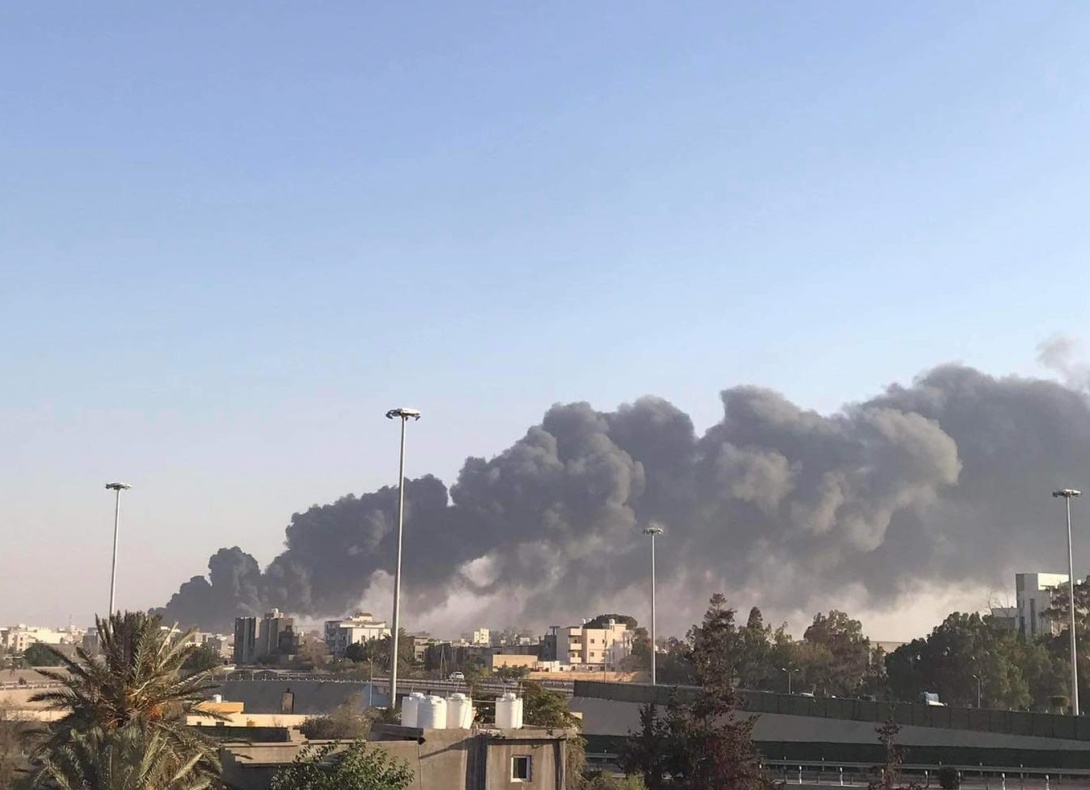The days-long clashes between the powerful Special Deterrence Force and the 444, both backed by the Government of National Unity (GNU).
Qatar expressed its “deep concern” over this week’s deadly clashes between rival military factions in the Libyan capital of Tripoli, which has raised fears of further escalations in the country.
The days-long clashes between the powerful Special Deterrence Force and the 444, both backed by the Government of National Unity (GNU), killed at least 27 people.
“The State of Qatar expresses its deep concern over the developments in the Libyan capital Tripoli,” the Gulf state’s foreign ministry said in a statement on Tuesday.
“It also calls on all parties to avoid escalation, exercise maximum restraint and use the voice of reason, overcome differences through dialogue, and spare civilians the consequences of confrontations,” it added.
The statement also echoed Qatar’s support for the Libyan political process as well as the United Nations’ efforts to achieve “peace and stability”.
“The ministry also reiterates Qatar’s full support for the Libyan political process, the relevant Security Council resolutions, and all peaceful solutions that preserve the unity, stability and sovereignty of Libya, and fulfil the aspirations of its brotherly people for development and prosperity,” the Qatari foreign ministry added.
Various sources on the ground told news agencies that the violence was triggered by the detainment of 444 Brigade Commander Mahmoud Hamza by the rival military faction on Monday.
Hamza was travelling through the Mitiga International Airport, which is controlled by the Special Deterrence Force. The commander is also a former officer in the Special Deterrence Force and previously mediated between the two military sides.
The fighting reportedly stopped after the release of Hamza by the Special Deterrence Force, sources from the two factions told Reuters.
The latest clashes, believed to be the worst to take place in Libya this year, have raised fears over further escalation in the country.
The crisis in Libya has seen several rounds of violence erupt, most notably the fatal clashes of August that killed at least 32 people last year.
Last year, tensions increased between the United Nations-backed GNU of Abdul Hamid Al Dbeibah and the rival administration of Fathi Bashagha—widely viewed as an ally of rogue General Khalifa Haftar.
On Tuesday, the UN Support Mission in Libya said it was “following with concern” the latest violence in the country, calling all sides to “preserve the security gains achieved in recent years and address differences through dialogue.”
In June, Libya’s factions agreed on a legal process to hold delayed presidential and legislative elections that were initially scheduled to take place in 2021 before they were delayed due to a political split between rival factions.
The Libyan parties had agreed to form a committee represented by the House of Representatives (HoR) and High State Council (HSC), comprising six members tasked with drafting the electoral laws.
While the HoR was elected in 2014 for 18 months, the HSC was elected once again in 2015 under a political agreement by the parliament in 2012, a year after the death of long-time ruler Muammar Gaddafi amid mass pro-democracy protests.
Speaking at the UN last year, Qatar’s Amir Sheikh Tamim bin Hamad Al Thani demanded an immediate international response in order to complete the Libyan political process.
“Everyone realises that the state cannot be restored without uniting the military forces and rehabilitating the armed factions into a single national army, discarding those who reject this solution and holding them accountable,” the amir said.







